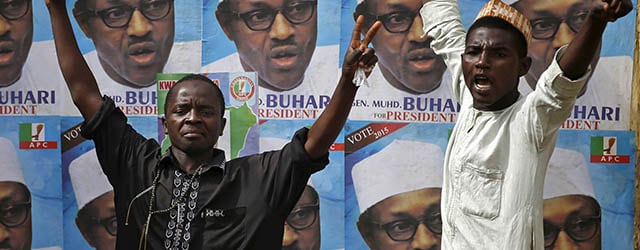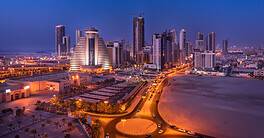Nigeria’s presidential election proved the bookmakers both right and wrong.

They were right because as many predicted, former army general Muhammadu Buhari won; but they were wrong because the post-election violence that every analyst agreed was certain to follow failed to materialize.
Nigeria remains a united country, in part because president Goodluck Jonathan put national interests above personal ambition. While the votes were still being tallied, he reached out to Buhari and invited him to Aso Rock, the seat of political power, to discuss the transition program. That phone call, the first such concession by a politician in the country, changed the history of Nigeria, pulling Africa’s most populous nation and biggest economy back from the brink.
Buhari is known for his anticorruption stance, and throughout his campaign he and his All Progressives Congress party eloquently sold this tack to an electorate eager to see the end of corruption. Buhari’s victory marks his second coming as Nigerian leader. In December 1983 he became military head of state through a coup d’état, accusing the government he overthrew of corruption. His 20-month stint as leader before being overthrown witnessed drastic measures against public officials who were imprisoned and made to forfeit assets they were said to have illegally acquired.
Buhari’s past will define the course of his administration, analysts say, noting that his anticorruption fight will improve Nigeria’s rating as an investment destination. “The new government is primed to improve on the country’s corruption perception rating globally in the next few years, and we expect that to have a positive impact on foreign direct investment flows,” wrote United Capital, a unit of United Bank for Africa, in a recent advisory report.
“Buhari’s presidency will almost certainly launch a corruption probe that makes contract renegotiation and cancellations highly probable in sectors including bulk fuel distribution, power, oil and gas, defense spending and infrastructural projects,” Murtala Touray, senior Africa analyst, economics and country risk, at IHS Global Insight, stated after the election results were announced.
The new government faces near-term challenges from low crude oil prices. United Capital estimates that since June 2014, Nigeria’s fiscal revenue and export earnings have fallen by approximately 50.3%, noting that, at best, diversification of government revenue remains a medium-term strategy. The government also faces increasing pressure on revenues, with negative impact on both capital and recurrent expenditure.



